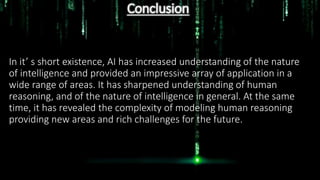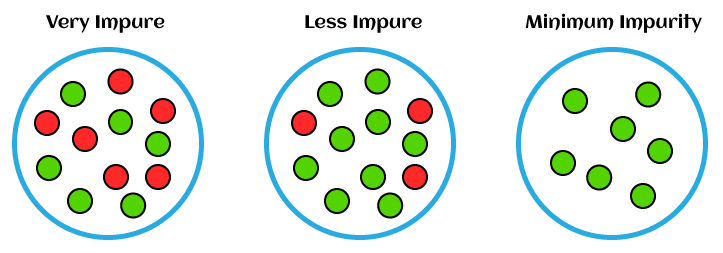As technology continues to evolve, the DevOps team must keep up with the latest advancements in order to stay ahead of the game. One of the most promising technologies to emerge in recent years is artificial intelligence (AI). While AI has been utilized in various industries, the DevOps team can leverage its capabilities to optimize their processes and achieve greater efficiency.
AI can assist the DevOps team in several ways. Firstly, it can help with automating repetitive tasks, freeing up team members’ time to focus on more complex tasks that require human input. Secondly, AI can analyze large amounts of data gathered from various sources, providing valuable insights and identifying patterns that would not be easily visible to humans. Finally, AI can help with predicting and preventing potential issues, allowing the team to proactively address them before they become major problems. In this article, we will explore how the DevOps team can take advantage of AI and the benefits it can bring to their organization.
DevOps teams can take advantage of Artificial Intelligence (AI) by using technologies such as Machine Learning (ML) and Natural Language Processing (NLP) to automate processes, increase efficiency, and improve overall performance. AI can be used to analyze large amounts of data to identify patterns and trends, and to optimize processes such as software development and deployment. Additionally, AI can be used to automate repetitive tasks, enabling DevOps teams to focus on more complex tasks. AI can also be used to improve customer service, by providing accurate and timely responses to customer inquiries.

How can DevOps Teams take advantage of Artificial Intelligence?
Artificial intelligence (AI) is transforming the way businesses operate, and DevOps teams are no exception. Through the use of AI, DevOps teams can gain a competitive edge by leveraging AI’s ability to automate tasks, increase efficiency, and improve decision-making. This article will explore the various ways in which DevOps teams can take advantage of AI in order to achieve their goals.
Automation
One of the primary benefits of AI is its ability to automate tasks. This can help DevOps teams save time and resources by reducing the amount of manual labor required to complete tasks. AI can be used to automate processes such as deployment, testing, and monitoring, as well as to identify and resolve issues more quickly. Additionally, AI can be used to automate the analysis of system logs, helping DevOps teams to quickly identify potential problems or areas for improvement.
AI can also help DevOps teams optimize their processes by providing insights into potential areas of improvement. For example, AI can be used to analyze data and make recommendations on how to improve performance, reduce costs, and increase efficiency. Additionally, AI can be used to predict potential issues and recommend solutions before they become problems.
Decision Making
Another way in which AI can benefit DevOps teams is through improved decision-making. AI can be used to analyze data and provide insights into potential problems or areas for improvement. Additionally, AI can be used to identify patterns and trends in data, helping DevOps teams to make more informed decisions. AI can also be used to generate recommendations for the best course of action, helping DevOps teams to streamline their processes and make better decisions.
AI can also help DevOps teams to identify potential opportunities for improvement. For example, AI can be used to analyze system logs and identify areas where processes can be streamlined or optimized. Additionally, AI can be used to identify areas of risk and suggest solutions to reduce the risk of potential problems.
Communication
Another way in which AI can help DevOps teams is through improved communication. AI-powered chatbots can be used to provide automated responses to customer inquiries, helping DevOps teams to respond to customer inquiries more quickly and efficiently. Additionally, AI-powered virtual assistants can help DevOps teams to communicate with other team members, as well as customers, more effectively.
AI can also help DevOps teams to automate the process of creating and maintaining documentation. AI-powered tools can be used to quickly generate documents, such as technical specifications and user manuals, helping DevOps teams to stay on top of the latest changes and updates. Additionally, AI can be used to generate reports and summaries, helping DevOps teams to stay up to date on the status of their projects.
Security
AI can also be used to help DevOps teams protect their systems from potential threats. AI-powered tools can be used to detect and prevent malicious activity, helping to ensure the security and integrity of systems. Additionally, AI can be used to analyze system logs and identify potential vulnerabilities, helping DevOps teams to identify and respond to potential security threats.
AI can also be used to monitor systems and detect suspicious activity. AI-powered tools can analyze system logs and detect anomalous behavior, helping DevOps teams to identify potential threats and respond quickly. Additionally, AI can be used to detect malicious activity and alert DevOps teams to potential threats, allowing them to take action before any damage is done.
Deployment
AI can also be used to help DevOps teams deploy applications and services more quickly and efficiently. AI-powered tools can be used to automate the process of deploying applications and services, helping DevOps teams to streamline the process and reduce the time required for deployment. Additionally, AI can be used to identify potential problems during deployment, such as compatibility issues, helping DevOps teams to troubleshoot and resolve issues more quickly.
AI can also be used to monitor application performance and identify potential issues. AI-powered tools can be used to analyze system logs and detect potential problems, helping DevOps teams to quickly identify and resolve issues before they become larger problems. Additionally, AI can be used to monitor application performance and provide insights into potential areas of improvement, helping DevOps teams to optimize their applications and services.
Frequently Asked Questions
DevOps teams are increasingly looking to leverage artificial intelligence (AI) to improve their operations and enhance the software development process. This article answers some of the most common questions about how DevOps teams can use AI to their advantage.
How Can DevOps Teams Take Advantage of Artificial Intelligence?
DevOps teams can take advantage of artificial intelligence (AI) to improve their operations and enhance the software development process. AI can be used to automate many of the repetitive tasks that DevOps teams face, such as automating code testing, code deployment, and system monitoring. AI can also be used to generate insights from data collected from DevOps operations, such as system performance, user behavior, and resource utilization, helping DevOps teams identify issues and opportunities for improvement.
In addition, AI can be used to enhance the development process, from writing code to managing projects. AI can generate code and help ensure code quality, as well as automatically detect bugs and vulnerabilities in existing code. AI can also be used to automate project management tasks, such as scheduling, task tracking, and resource allocation. By leveraging AI, DevOps teams can save time and resources and focus on more strategic activities.
What Are the Benefits of Using Artificial Intelligence in DevOps?
Using artificial intelligence in DevOps can provide DevOps teams with a number of benefits. AI can help automate many of the routine tasks associated with DevOps, such as code testing and deployment, freeing up DevOps teams to focus on more strategic activities. AI can also help DevOps teams to generate insights from data collected from their operations, allowing them to identify issues and opportunities for improvement. Finally, AI can be used to enhance the development process, from writing code to managing projects, helping DevOps teams to save time and resources.
Overall, AI can help DevOps teams to optimize their operations, improve the quality of their software, and reduce costs. This can give DevOps teams a competitive edge, as they can deliver high-quality software faster than ever before. By leveraging AI, DevOps teams can also stay ahead of the curve and stay up-to-date with the latest advancements in the field.
What Are the Challenges of Using Artificial Intelligence in DevOps?
Using artificial intelligence in DevOps can present DevOps teams with a number of challenges. First and foremost, AI requires a significant amount of data to be effective. This means that DevOps teams must have access to comprehensive and reliable datasets to train and deploy their AI models. In addition, AI models can be difficult to maintain and update, and require significant expertise to use effectively. Finally, AI can be expensive to implement, as it requires specialized hardware and software, as well as skilled personnel to manage it.
In order to successfully use AI in DevOps, DevOps teams must ensure they have access to the necessary data, resources, and expertise. They must also invest in the right technology and hire the right personnel to ensure their AI models are effective and up-to-date.
How Can DevOps Teams Ensure Security with Artificial Intelligence?
DevOps teams can ensure security when using artificial intelligence by taking a number of steps. First, DevOps teams should create a strong security policy that outlines the steps they need to take to protect their AI models, data, and systems. This should include measures such as encrypting data, using authentication and authorization, and regular backups.
In addition, DevOps teams should implement a robust monitoring system to detect potential security threats and take action quickly. This should include regular vulnerability scans, intrusion detection systems, and network monitoring. Finally, DevOps teams should create an audit trail to track changes to their AI models and data, and ensure they are compliant with any applicable regulations.
What Are the Best Practices for Using Artificial Intelligence in DevOps?
There are a number of best practices that DevOps teams should follow when using artificial intelligence in DevOps. First, DevOps teams should create a strategy for how they will use AI, and make sure all stakeholders are on board. They should also ensure they have access to the necessary data, resources, and expertise to successfully implement AI.
In addition, DevOps teams should establish a strong security policy to protect their AI models and data, as well as a robust monitoring system. They should also create an audit trail to track changes to their AI models and data, and ensure they are compliant with any applicable regulations. Finally, DevOps teams should regularly evaluate their AI models to ensure they are performing as expected and make any necessary changes.
In conclusion, the integration of artificial intelligence and DevOps is a game-changer for organizations that are looking to improve their software development and deployment processes. By leveraging AI, DevOps teams can automate repetitive tasks, reduce errors, and optimize their workflows to achieve greater efficiency and productivity. Furthermore, AI can help DevOps teams to make data-driven decisions, identify patterns, and predict potential issues before they occur, leading to faster and more reliable software releases.
However, it is important to keep in mind that the success of this integration will depend on the ability of DevOps teams to adapt to these new technologies and incorporate them into their existing workflows. Additionally, the use of AI in DevOps raises concerns about security, privacy, and ethical issues that must be addressed. Organizations must ensure that they implement AI in a responsible and ethical manner, and that they prioritize the protection of their customers’ data and privacy. In summary, the combination of DevOps and AI is a powerful tool that can help organizations to deliver better software faster, but it must be approached with caution and with a focus on responsible implementation.



